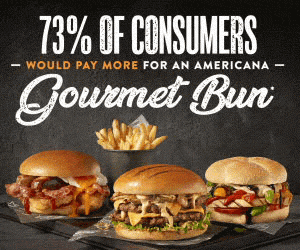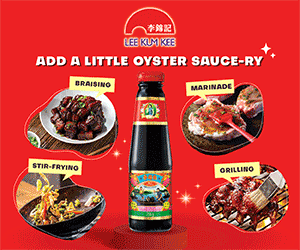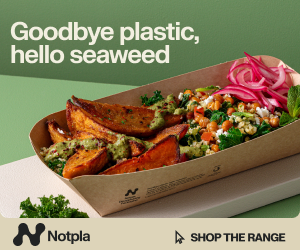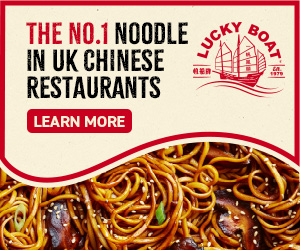Opinion: Purpose over profit

Edward Weston, sales and marketing executive for Savanta, on how to conduct successful social awareness campaigns...
Marketing activity that focuses on social issues is nothing new, in fact it’s growing. Consumers are increasingly basing their purchase decisions on social causes they care about, with 87% being willing to pay a premium for organisations with clearly demonstrated social and sustainable initiatives.
As more and more consumer brands are ramping up their positioning to align with consumer values, a question remains unanswered. How can these brands stay authentic and true to their purpose versus fishing for profits under false pretences?
Breaking it down
The goal with social awareness campaigns is to raise attention around a social topic, while also retaining a business's profits. Evidently, the two do not go hand in hand. In the past, brands have been targeted for ‘greenwashing’, or valuing profit over purpose and consequently doing more harm than good by sensationalising a serious issue (think Kendell Jenner and Pepsi).
Nevertheless, breaking the mould from product-pushing advertising has helped organisations to capture awareness from wider markets. This creates an opportunity for them to connect with consumers in a new way, enhancing the public brand image and, ultimately, increasing brand love.
With most societal issues being universally recognised, there is no ‘gatekeeping’ of sectors that can and can’t produce content around these issues. The movement toward corporate social responsibility in recent years has already forced many businesses to consider issues bigger than the industry they operate in. The challenge currently faced by brands is running campaigns that are perceived to be using a social issue, rather than supporting it.
To support or not to support
The dilemma faced by business-to-consumer brands is aligning their business with social issues without appearing ingenuine or having an ulterior motive to push their products.
For Mental Health Awareness month in 2019, Burger King launched its Feel Your Way campaign in the US. Nominated in 2022 for a Cannes Lions award, the promotion featured a re-branding of the Whopper meal boxes, labelled with emotions ranging from ‘Sad’ to ‘Pissed’ to ‘DGAF’, among others. Later titled Unhappy Meals (a clever on-brand poke at Mcdonald’s Happy Meals), the campaign sought to normalise conversations around mental health, with Burger King also releasing a short video across its social channels reminding consumers that ‘It is okay not to be happy all the time’.
By financial measures, the campaign was successful, gaining 2.9bn earned media impressions, driving $33.1m of earned media. However, data from BrandVue, Savanta’s market intelligence platform, details that the US chain saw a spike in negative buzz following the launch of the campaign, translating to a 3% decline in brand love. Despite gaining awareness from earned media, the campaign was ineffective at making any steps toward advancing the social issue or enhancing the brand’s image.
And why was this? Because the campaign was product orientated. When brands carry out social awareness campaigns properly (and not focus on product ranges), the benefits of sacrificed profits are exceeded by an increase in customer loyalty and positive engagement.
Notably, gen z audiences in the US saw the biggest increase in hearing something negative about Burger King over this period (6%). In the UK, this audience is the most swayed by brands promoting social issues, and therefore is the audience to engage with.
To win over gen z, businesses must have a social conscience. However, this audience is also the savviest. Data from State of the Youth Nation, Savanta’s leading gen z insight tracker, shows that last year, two in five gen zers had boycotted a brand because it didn't align with their values or were illegitimate in doing so.
Best practices to remain authentic
So, how can dining out brands deliver effective social awareness campaigns authentically and believably?
Know your audienc’s values
Authentic consumer brands know their audience’s values, understand what matters most to them and how they want to be treated. Conduct polls, research the market and engage in social listening, and use those insights when creating campaigns and content.
Ensure your business model aligns with the cause
Being invested in societal issues does not stop at marches, hosting charity events or donating profits. Businesses should follow up on their social justice efforts with data to show what they’ve accomplished. For example, Impossible Foods has a dedicated landing page where its community can follow its ‘zero waste journey’ and overall environmental impact.
As social issues become a fundamental part of key consumers’ identities and values, there’s an opportunity for businesses to connect with these audiences beyond a transactional relationship, influencing buying patterns in the long term.
Brands in the eating out sector are perfectly positioned to capitalise on social awareness campaigns, since they carry products and services that appeal to a diverse range of customers and have the resources and presence to receive significant media attention. The success of such campaigns lives and dies with whether they’re done at the right time and in the right way, all the while listening to changing consumer needs.

















